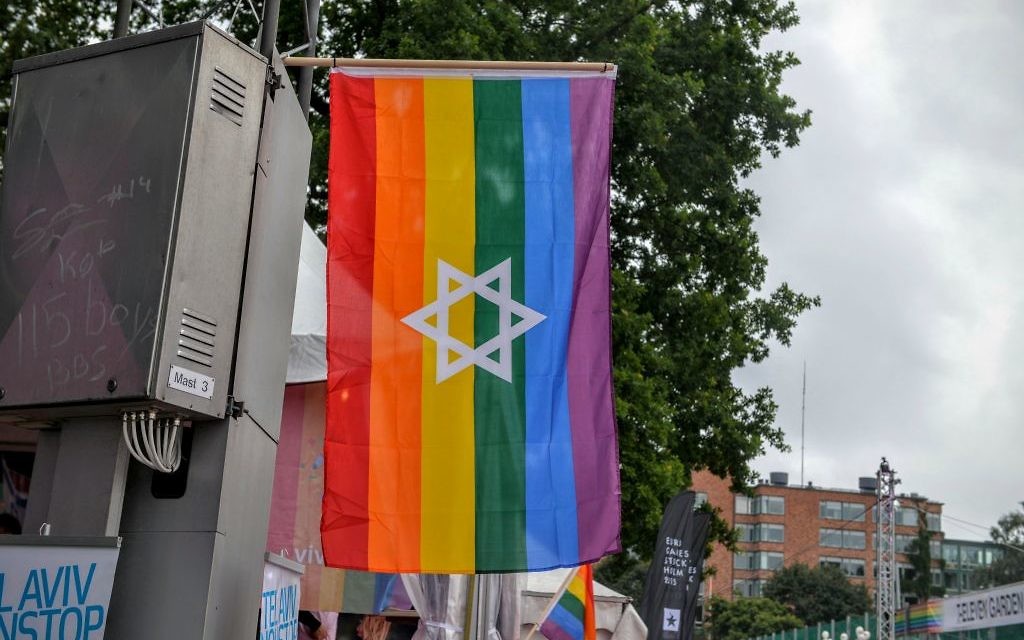When Jews Intersect Intersectionality
The response to the Jewish star at the Chicago Dyke March again forces progressive Jews to choose.

My opinion on the conflict between Israel and the Palestinians is unrelated to my view of interaction between African-Americans and police, and neither influences my perspective on the legal rights of the LGBTQ community.
I am capable of holding an opinion on one issue without feeling obligated to hold a particular opinion on another.
Demands for such linkage disparage people who might be allies but object to arranging their opinions to pass an ideological litmus test.
Get The AJT Newsletter by email and never miss our top stories Free Sign Up
I reject this application of “intersectionality,” as the term has come to be used — the notion that my support of X requires support of Y; otherwise, my support for X is less legitimate and less deserving of inclusion in efforts to support X.
An outgrowth of the racial and feminist movements of the 1960s and 1970s, the theory of intersectionality was articulated in a 1989 article by Kimberle Williams Crenshaw, a law professor, civil rights activist and scholar in a field known as “critical race theory.” Crenshaw asserted that African-American women suffered unique forms of discrimination based on a combination of their race and gender.
The broader idea is that a combination of identities — which could include social class, ethnicity, religion, sexual orientation, age, and mental or physical capabilities — can be responsible for discrimination.
That much makes sense, but intersectionality has been weaponized (or corrupted, if you prefer) by activists using their interpretation to enforce ideological discipline within their movements.
It’s not surprising that, in these circles, displaying pride in one’s Jewish heritage or expressing affection for Israel (even while being critical of its policies) might be considered signs of questionable loyalty by those whose anti-Zionism sometimes drifts close to anti-Semitism.
“Despite its enormous value and importance, however, the idea of intersectionality can also be manipulated to exclude Jewish issues from pro-justice movements. This is because Jews do not fit its traditional definition of marginalization. Unlike other forms of racism, anti-Semitism constructs its subject (the Jews) as powerful, dominating, and privileged,” Benjamin Gladstone, a student at Brown University, wrote in a commentary for the online magazine Tablet.
In June, three Jewish women were kicked out of the Chicago Dyke March because they carried the rainbow flags of the gay, lesbian, bisexual, transgender and queer movement adorned with a Star of David.
An organizer said that the flags “made people feel unsafe” and that the march was both “anti-Zionist” and “pro-Palestinian.”
“It was a flag from my congregation which celebrates my queer, Jewish identity which I have done for over a decade marching in the Dyke March with the same flag,” one of the ejected women told the Windy City Times, a newspaper serving the city’s LGBTQ community.
Jewish individuals and numerous organizations that have supported the concerns of African-Americans in their encounters with police felt pushed aside when the Movement for Black Lives linked its cause with that of Palestinians confronting Israel.
The American Jewish Committee took issue with this stance last August, saying, “In doing so, MBL draws a false link to — and, in our view, dis-serves the worthy cause of — addressing racial disparities in the nation’s criminal justice system.”
Jews who objected to President Donald Trump’s ban on immigration from several predominantly Muslim nations (the subject of ongoing legal challenges) found themselves in the rhetorical crosshairs of activists who insisted that they also must oppose Israel: “From Palestine to Mexico, all the walls have got to go.”
After the Chicago parade, Bari Weiss, a staff editor for The New York Times opinion section, wrote: “For progressive American Jews, intersectionality forces a choice: Which side of your identity do you keep, and which side do you discard and revile? Do you side with the oppressed or with the oppressor?”
Even as they adhere to the biblical exhortation “Justice, justice, you shall pursue” (Deuteronomy 16:20) and resist marginalization based on their religion or an unwillingness to turn their backs on Israel, progressive Jews might also consider whether beneficial alliances can be formed with people who demand such conformity of opinion.




comments